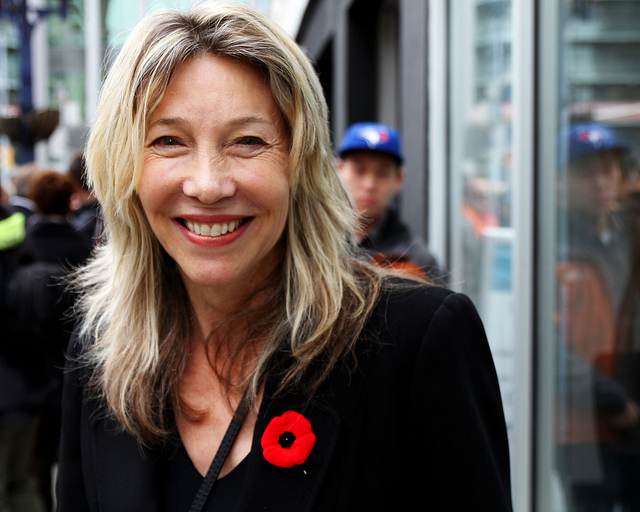On Monday, a byelection is being held in the riding of Toronto Centre, and Linda McQuaig, one of Canada’s principal champions of social justice and equality, is the NDP candidate for that seat in the House of Commons.
For years, the Liberal Party has taken Toronto Centre for granted — it is Bob Rae’s old riding and the Liberals want desperately to keep it to prove that Justin Trudeau is not just the vacuous pretty boy he actually appears to be. If he loses this riding, it would go a long way to exposing him and the party for what they are.
McQuaig’s Liberal opponent in the riding is Chrystia Freeland, a parachute candidate who is being touted as a progressive with deep concerns about inequality. Trudeau has tried to boost her profile by stating that he wants her in his “inner circle.”
The problem is that there is nothing to suggest that the Liberal Party or their star candidate give a damn about inequality let alone have any intention of doing anything about it. Trudeau’s hero is Paul Martin, who as finance minister did more than any other politician in Canada to undermine equality and reduce the power of ordinary workers. His “labour flexibility” policies devastated Canadian working people and large swaths of the middle class. He slashed Unemployment Insurance, ended the Canada Assistance Plan (the federal funding program that forced provinces to have half-decent social assistance programs), deliberately kept unemployment at high levels through the 1990s to weaken labour and generally abandoned policies that protected employees. He gave huge tax cuts to the wealthy, exacerbating inequality, and cancelled Canada’s social housing program. Even Brian Mulroney paled in comparison in his policies.
Neither Justin Trudeau nor Chrystia Freeland have said anything about reversing these socially destructive policies. Yet these are precisely the policies that have created much of the inequality Freeland talks about.
McQuaig, on the other hand, has consistently made the case that growing inequality is the direct result of an ideology that has dominated government policy and media discourse since the 1980s. McQuaig actually talks about solutions — advocating for strengthened social supports, rebuilding public programs, empowering labour and creating a more progressive tax system. The NDP has historically stood for these things, too, and if McQuaig wins she will be a strong voice to continue with these policies.
Freeland has also written about inequality but as McQuaig points out in her campaign, Freeland seems quite determined to not talk about solutions. Indeed, she may not believe that inequality is that big a problem. A lot of her research, according to her own account, consisted of interviewing and socializing with extremely wealthy people and she seems to have absorbed their convenient take on inequality: it is part of the “creative destruction” of capitalism which “inevitably brings an overall improvement in everyone’s standard of living.” In a pig’s eye.
It sounds an awful lot like Ronald Reagan’s “trickle down” theory — which we know doesn’t work in real life. In reality, the current rising tide lifts all yachts but leaves most people in sinking boats. That reality is the destruction of people’s lives, as their income security is whittled away through cutbacks in housing supports and unemployment benefits, the erosion of wages and job security.
Of course, Freeland doesn’t want to acknowledge the role played by neoliberal policies in driving up inequality in Canada because that would implicate her own Liberal party.
When she was appointed economic adviser co-chair by Trudeau, Ms. Freeland vowed to “work really hard” to “come up with some great ideas” on income inequality. Clearly, spending two decades shadowing the global super-rich has left her with few thoughts about how to counter the increasing diversion of money to the top. Maybe she should have hung around some of the people actually affected by the policies promoted by those she rubbed shoulders with.
If you care a whit about social and economic equality in this byelection, don’t get sucked in by the mantra that both candidates are “progressive.” This simply isn’t true. Freeland is little more than a socialite with a pen. And even if she was progressive, the likelihood is that the power brokers in the Liberal Party who actually decide its pro-corporate policies would sideline her if she won.
If you can vote in this byelection, do Toronto and the country a favour and vote for someone whose progressive commitment is unquestioned and long-standing — elect Linda McQuaig.
Murray Dobbin is a guest senior contributing editor for rabble.ca, and has been a journalist, broadcaster, author and social activist for 40 years. He writes rabble’s State of the Nation column, which is also found at The Tyee.
Photo: Joseph Morris/flickr



